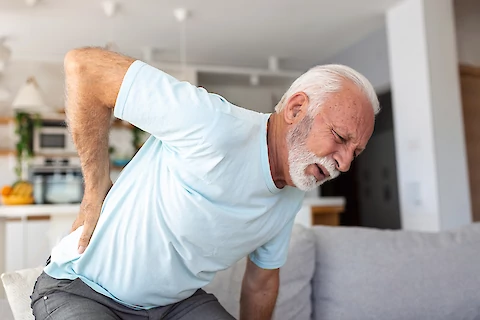
Osteoporosis, or bone density loss, is a serious issue for older adults. This can raise our risk of fractures and breaks, preventing us from enjoying healthy, active lifestyles. Many factors that increase your risk of osteoporosis, such as your genes, age, and gender, are unchangeable. But that does not imply that the condition cannot be managed.
Keeping your bones strong can significantly lessen the impact of a fall. If your bones are robust, the chances of a fall causing major injuries, such as a fractured hip or shoulder, are greatly reduced. Lifestyle modifications are a key component of care. Certain lifestyle adjustments will boost bone mineral density, lower the risk of fractures when you already have osteoporosis, and take preventative measures. Follow these tips to take proper care of your bones and to help your senior loved one to do the same.
1. Eat a Well-Balanced Diet
To maintain both your general health and the health of your bones, it's crucial to consume a well-balanced diet high in calcium and vitamin D. Both calcium and vitamin D have been proven to build bones.
Aim for five servings of fruits and vegetables per day, at least three portions of dairy per day, such as low-fat or nonfat milk, yogurt, and cheese, and approximately nine servings of protein per week. Limit your intake of processed foods and foods heavy in sugar, salt, fat, or carbs.
2. Safe Forms of Exercise
Regular exercise helps to maintain peak bone mass. This is especially true during the childhood or adolescent years. It will help decrease the loss of bone density as you age. The most beneficial activities are weight-bearing and resistance exercises. Walking, running, tennis, and trekking benefit your bones. Strength exercise can assist in increasing bone density. This will keep your muscles in good shape. It will also reduce your chances of falling.
High-intensity exercise and improperly executed strength training might increase your chance of fracture (break) if you have osteoporosis, which may exceed their benefits for strengthening your bones. Always consult your doctor before starting any workout regimen. The best course of action is to have a physiotherapist or exercise physiologist design a personalized fitness program for you.
3. Monitor Alcohol and Caffeine Use
Alcohol impairs vitamin D use in the body. This can reduce the amount of calcium absorbed. It also accelerates the removal of magnesium from the body. Furthermore, heavy drinkers often do not obtain adequate nourishment. Calcium and vitamin D are examples of such nutrients.
Alcohol disrupts your balance and walking ability. This may lead you to trip, stumble, or collide with items. It can also increase the likelihood of shattered bones.
4. Avoid Falls
The most crucial thing is to reduce your risk of falling. You have a higher chance of getting another fracture if you've already had one. Senior Helpers can evaluate your home to determine what adjustments you might make to reduce the risk of a fall. Be careful when changing a light bulb or reaching into high cabinets. Avoid using ladders whenever possible.
Consider obtaining additional in-home help for yourself, or your senior loved one, if you are living alone and at risk of falling. Seniors in the Greater Dallas region who wish to stay healthy as they age might benefit from expert senior home care. Senior Helpers of Greater Dallas is available to assist your loved one with everyday activities and help them lead a better and more satisfying life. We provide service to the regions of Dallas, Richardson, Plano, Addison, Carrollton, Allen, and nearby locations. Contact Senior Helpers of Greater Dallas today to learn more about our high-quality in-home care plans.